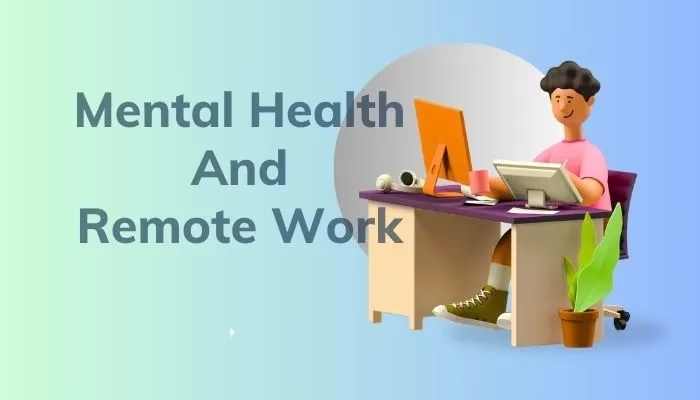
Remote work has changed professional lifestyles and provided flexibility and freedom. However, the mental health effects of remote work have emerged as increasing concern. Constant screen time, separation and blurry boundaries between work and personal life take a toll on emotional welfare. Since several people work for a long period of time at home, it quickly becomes important to understand how virtual work affects psychological health. In order to maintain balance, individuals must be more intentional about their routine and mental self -care.
When the house office is formed, emotional fatigue and separation can quietly crawl. The mental health effects of virtual work are greatly associated with daily social interactions, random conversations and the absence of collaboration face to face. The function of the external layout often masks deep emotional tolls that can take time in time. Individuals can miss the energy from a shared field and feel disconnected from organizational culture.
These emotional challenges may not be clear at first, but grow over time. As a result, they play an important role in influencing both short -term feelings and long -term mental welfare. Feeling emotionally isolated can reduce motivation and increase innovation in workplaces.
One of the most pushed mental fitness effects of remote work is difficulty maintaining clear boundaries between individual and professional life. Working from home blurred the lines between comfort and responsibilities, which really makes it difficult to switch. Over time, the house can begin to feel like a workplace compared to a sanctuary.
Without clear divisions, stress and mental burnout become more likely. This is a state of hyper -producing after emotional fatigue from the ongoing overlap, affecting long -term psychological balance. Individuals may begin to experience sleep disorders, irritability and chronic fatigue due to poor role separation.
Physical discomfort also plays an important role in the mental health effects of distance work. Long in front of the screen without sufficient breaks can lead to a lack of both physical and mental energy, causing irritability, poor focus and even depression. Inadequate home layout only destroys the physical toll money.
These physical challenges not only affect the body – they contribute directly to psychological stress. Common brakes, exercises and ergonomic adjustments are important for preserving mental flexibility. Place healthy habits such as expanding, hydration and natural light risk can promote both mood and attention.
Many remote workers have a heavy pressure experience to prove their productivity. It leads to perfection, excessive work and increased stress, which reduces the mental health effects of all remote work. Without managers physically present, some individuals feel the need to constantly demonstrate their value. The need to “always be online” creates continuous stress.
Not only this toxic cycle of proving to disrupt creativity also weakens emotional welfare, making it difficult to maintain permanent task habits. Over time, it can lead to emotional burnout, loss of confidence and loss of working life.
Family life can both support and prevent virtual work. Being close dear gives comfort, it can also have mental health effects of remote work when boundaries are not respected or when the space is limited. Juggling roles can cause stress, especially for parents and carers. Privacy or lack of cool space can significantly reduce productivity.
The combination of work pressure and family obligations creates a delicate atmosphere. Without clear communication and mutual support, this dual burden can deeply affect both mental stability and job performance. Creating shared schedules and respectful boundaries can improve both relationships and focus.
In order to decrease the mental health effects of remote work, individuals must deliberately practice self -care and install sustainable habits. Thoughtful routines, social interaction, and mental health resources are critical in restoring balance. Proactive mental wellness practices can build resilience.
This practice can significantly strengthen emotional health, making them easier to bloom in a remote work setup. A commitment to hobbies and mindfulness practices can also promote mental clarity and emotional balance.
Society plays an important role in decreasing the mental health effects of remote work. The management should not only focus on production, but also on the team’s emotional and psychological status. A subsidiary work culture promotes flexibility and mental strength. It is necessary to encourage open dialogue.
By promoting the culture of care and openness, companies can help decrease remote work-related stress and increase employees’ satisfaction and storage. Transparent communication and sympathy from leadership set the tone for positive team morality.
The mental health impacts of remote work affect every aspect of life-from control and inspiration for emotional welfare and social connections There are undisputed benefits while working remotely, its psychological results should be accepted and addressed. Both individuals and organizations should take steps to protect mental health through active routine, auxiliary environment and continuous communication. With conscious effort and understanding, it is possible to create a healthy, more balanced distance work experience that supports both personal and business development. Investing in mental welfare eventually leads to more busy, motivated and happy remote teams.